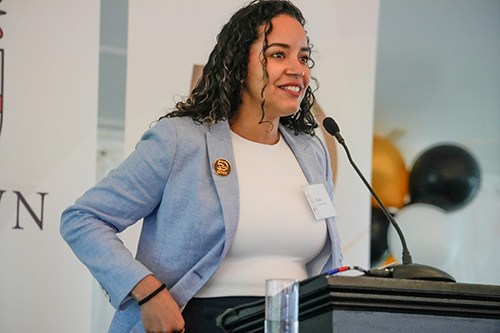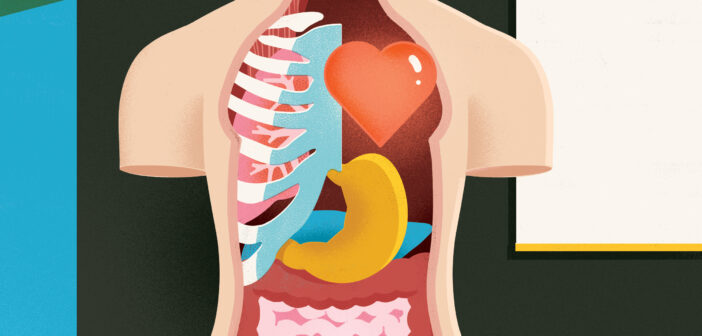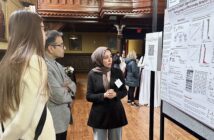Social responsibility, both locally and globally
At Brown, students and faculty feel an obligation to create a better world for all.

Gisel Bello MD’22
Gisel Bello MD’22 couldn’t quite put words to the distinctive energy she experienced when she arrived on campus for her first medical school interview in 2017, but she could feel it among the students and faculty: a mix of deep humanity and a profound desire to make the world a better place: “a certain oomph,” she recalled.
Five years later, on the cusp of her graduation, she knew exactly the words to describe that feeling. “The ‘oomph’ I felt is social responsibility,” she said as part of her remarks for the 50 Years of Medicine opening celebration in April. “As medical students at Brown, we are leaders devoted to improving the health and wellness of everyone. That means that sometimes we have to challenge the status quo. That means that when we find inequity in the systems we are part of, we challenge and hold to account the institutions responsible for those systems.”
That deep-seated commitment to improving the health and wellness of everyone was essential to the School’s very existence: in the 1960s, a major driver for the development of a medical school was to support the health of Rhode Island’s residents. At the time, critically ill patients had to be sent out of state. With no tertiary care facilities, it was difficult to recruit specialists who could provide patient care for complex health challenges. A medical school could help solve those problems and lead to a healthier state for everyone.
Since then, that sense of social responsibility has deepened and expanded. For example, partnerships with outside institutions have offered new opportunities to make an impact, including a collaboration between Brown, The Miriam Hospital, and the Rhode Island Department of Corrections. A distinctive program developed for incarcerated individuals who have opioid use disorder has helped dramatically reduce deaths in these individuals after they are released.
In 2020, Adam Levine, MD, MPH, who directs the Center for Human Rights and Humanitarian Studies, saw an opening to make a difference during the pandemic: the center’s “training of the trainers” course in COVID-19 preparedness and response for health care workers was ultimately delivered to more than 80,000 frontline health leaders in more than 55 countries. In many ways, the pandemic illuminated how many people are vulnerable in times of crisis, and how much work remains. At Brown, the charge will always be to turn that “oomph” into action.




